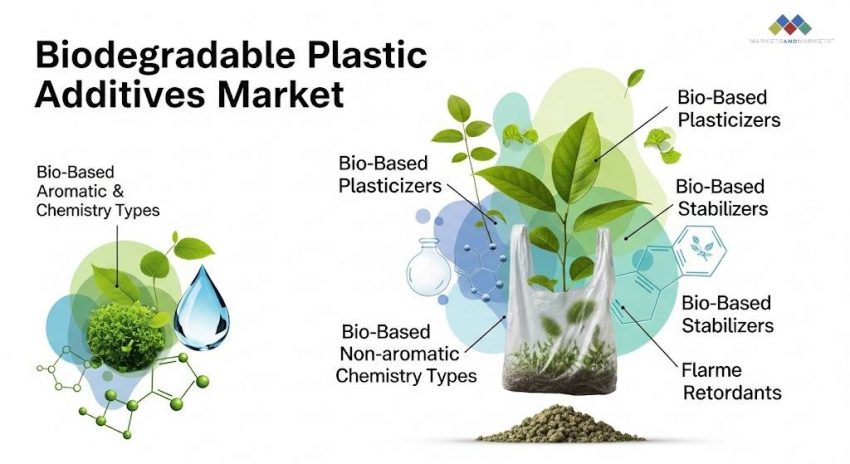As the global focus intensifies on reducing plastic pollution, the biodegradable plastic additives market is emerging as a crucial enabler of eco-friendly and sustainable plastic solutions. Designed to enhance the degradation properties of traditional and bioplastics, these additives play a pivotal role in accelerating compostability, improving material breakdown in specific environments, and meeting global regulatory and environmental standards. The shift toward green plastic additives is reshaping packaging, agriculture, automotive, and consumer goods industries, while creating lucrative opportunities for manufacturers, product developers, and investors.
The global Biodegradable Plastic Additives Market worth $2.20 billion by 2029. This substantial growth is due to rising concerns over plastic waste and stricter governmental regulations on single-use plastics.Brands and industries are under pressure to align with circular economy goals, leading to increased demand for biodegradable polymer additives that can be seamlessly incorporated into polyethylene (PE), polypropylene (PP), polylactic acid (PLA), and other resins. The demand for biodegradable masterbatch and compostable plastic additives is also surging across regions including North America, Europe, and Asia-Pacific.
One of the key drivers of the market is the push toward sustainable plastic packaging additives. As industries look to replace conventional plastic films, wraps, and containers with environmentally safer alternatives, biodegradable additives are being adopted for flexible and rigid packaging applications. These solutions ensure faster degradation when exposed to natural elements such as sunlight, moisture, and microbes—helping reduce long-term landfill accumulation. Moreover, biodegradable additives for polyethylene and polypropylene are now capable of maintaining product shelf-life and functionality while enhancing environmental compliance.
Innovations in biodegradable plastic resin enhancers have improved the ability of these materials to degrade efficiently in composting facilities and soil. These additives are now engineered to break down under specific conditions without leaving behind toxic residues, making them suitable for food packaging, agricultural mulch films, shopping bags, and disposable cutlery. For product developers and engineers, these advances offer a way to align product portfolios with ESG (Environmental, Social, and Governance) goals while retaining performance and cost-effectiveness.
Geographically, the Asia-Pacific market for biodegradable plastic additives is expanding rapidly, led by increased plastic production and tightening government regulations in countries like India, China, and Japan. Europe continues to lead in regulatory adoption, with high demand for biodegradable additives for flexible packaging and strong policy support for compostable materials in retail and food service. North America is witnessing growing use of eco-friendly plastic additives in agricultural films, automotive components, and e-commerce packaging.
The market’s commercial landscape is also evolving with the rise of biodegradable plastic additives suppliers offering customized formulations tailored to resin type, processing method, and end-use application. From buying biodegradable additives online to sourcing bulk solutions from biodegradable masterbatch manufacturers, the supply chain is becoming increasingly dynamic. For procurement managers, the ability to select the best additives for biodegradable plastics—based on application requirements, biodegradation environment, and certification standards—is essential to long-term product success.
Sustainability certifications such as ASTM D6400, EN 13432, and ISO 17088 have further boosted the credibility and market acceptance of biodegradable additives. Businesses that incorporate certified additives for plastic biodegradability improvement gain a significant edge in regions with strict environmental labeling requirements. These standards also allow companies to build brand value while addressing growing consumer demand for responsible product choices.
In conclusion, the biodegradable plastic additives market represents a powerful intersection of innovation, sustainability, and profitability. As industries move toward reducing environmental impact without compromising performance, these additives offer a scalable and commercially viable solution. Whether you’re a packaging manufacturer, polymer engineer, brand owner, or investor, now is the time to tap into this growth-driven, green materials frontier. By adopting biodegradable plastic solutions, stakeholders can future-proof their operations while contributing to a more sustainable planet.

